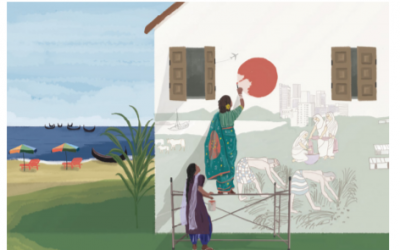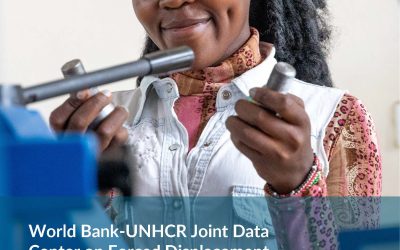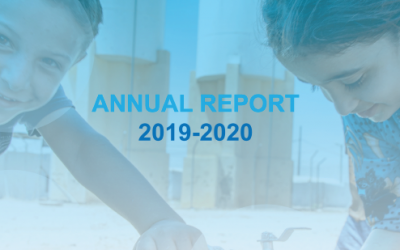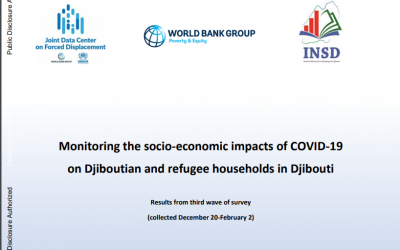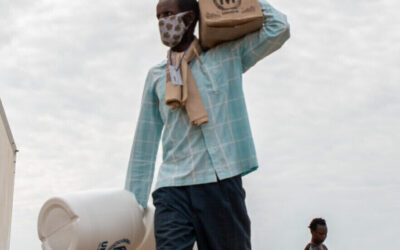Publications and reports
Impact of Covid-19 On Work and Wages in Cox’s Bazar: Part 1 – Rohingya Camps
This brief summarizes findings from rapid welfare tracking surveys in Cox’s Bazar. Two rounds of tracking surveys were implemented via phone interviews in 2020 to monitor the impacts of the COVID-19 crisis on labor markets, wages, and household coping strategies.
JDC Strategy 2024 – 2027
The JDC strategy describes how we aim to improve the protection and well-being of populations affected by forced displacement through data and evidence.
JDC Annual Report 2019-2020
The first JDC Annual Report reflects on the activities undertaken by the JDC to improve the availability and accessibility of high-quality socioeconomic data.
Monitoring the socio-economic impacts of COVID-19 on Djiboutian and refugee households in Djibouti – results from R3
The high-frequency phone survey monitors the economic and social impact of and responses to the COVID-19 pandemic on refugees and nationals.
Compounding Misfortunes : An Update to the Study
Compounding Misfortunes : An Update to the StudyThe study Compounding Misfortunes funded by the Joint Data Center and jointly published by the World Bank and the United Nations High Commissioner for Refugees (UNHCR) in December 2020, represented an initial...
Monitoring COVID-19 Impact on Refugees in Ethiopia – Report No. 2
Monitoring COVID-19 Impact on Refugees in Ethiopia Report No. 2The high-frequency phone survey of refugees monitors the economic and social impact of and responses to the COVID-19 pandemic on refugees and nationals. The main objective is to inform timely and adequate...
Data and Research on Children and Youth in Forced Displacement: Identifying Gaps and Opportunities
Traditional approaches to managing forced displacement remain largely child blind. This third JDC Quarterly Digest highlights some examples of research which contribute to closing these gaps, by focusing on three main areas of investigation: mental health risks faced by forcibly displaced children; evidence from existing evaluations and assessments on ‘what works’; and emerging research into the use of technological innovations for the management of child migration and displacement data.
Monitoring COVID-19 Impact on Refugees in Ethiopia – Report No. 1
The high-frequency phone survey of refugees monitors the economic and social impact of and responses to the COVID-19 pandemic on refugees and nationals, by calling a sample of households every four weeks. Round 1 of data collection for the refugee sample occurs simultaneously with Round 6 of the national HFPS operation. This survey brief summarizes the results of the first round of the joint national and refugee HFPS, implemented between 24 September and 17 October 2020.
Compounding Misfortunes
This JDC supported study on the aftermath of COVID-19 in the Mashreq Region dives into the changes in Poverty since the onset of COVID-19 on Syrian Refugees and Host Communities in Jordan, the Kurdistan Region of Iraq and Lebanon.
Forced Displacement and Educational Outcomes: Evidence, Innovations, and Policy Indications
This JDC Quarterly Digest focuses on the impacts of forced displacement on education outcomes for internally displaced populations, refugees and their host communities. It further looks at some of the policies and interventions that provide strong evidence for a shift towards national inclusive education systems and calls for strengthening the evidence base on what works to create sustainable, inclusive solutions.



